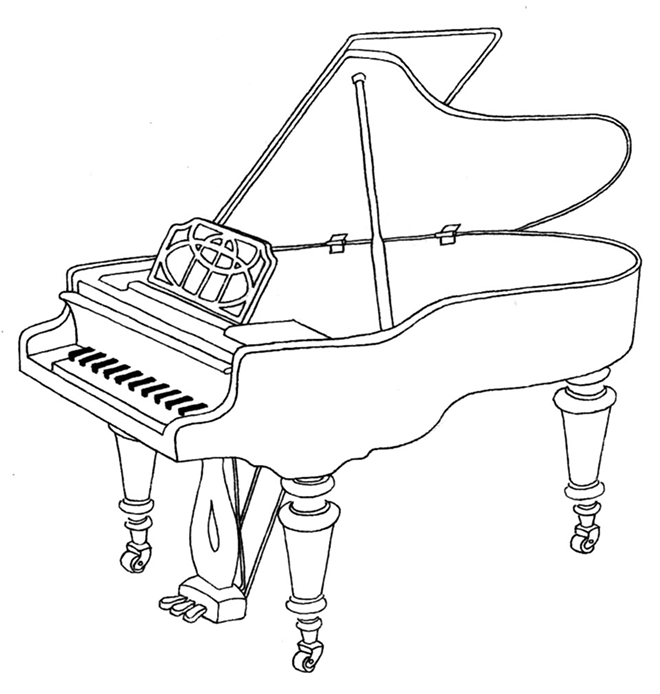Heard melodies are sweet, but those unheard
Are sweeter; therefore, ye soft pipes, play on;
Not to the sensual ear, but, more endear’d,
Pipe to the spirit ditties of no tone…
I don’t believe in immortality. It’s true that when we die we’re not so much departed as redistributed, but our galaxy will eventually burn out or collapse. Still, that’s very distant from now, and should be enough immortality for anyone. Besides, since I don’t know this for certain, I won’t argue with you. Angels on clouds, 72 virgins in paradise, spirits in the air, ghostly presences in our DNA, they’re OK with me.
But like the poet John Keats, I am certain of “the truth of the imagination.” The linked arms of poetry and music seem to be particularly strong carriers of our limited “immortality.”
These stray thoughts are sparked by the recent death from bone cancer of the pianist, Van Cliburn (1934-2013). Everyone’s life has vivid moments, and one of those for us involved him when we were at the University of Michigan in 1960. I was a graduate student, and we were flat broke, borrowing from Beneficial Finance (“Don’t worry,” they told me, “our best customers are teachers.” We didn’t find this reassuring.)
Having neither time nor money that whole academic year, we couldn’t go out to a movie, a restaurant, or even for a drive, which used up gas. Still, we managed two extracurricular adventures: First, we went to a football game — free because we agreed to hold up signs that spelled MICHIGAN, or HURRAY, or whatever. It was fun, in a humiliating kind of way. And about a week later, we went to a Van Cliburn concert. Students could get free tickets to unsold seats, so we got a friend to watch our kids, and hopped on the school bus that connected the graduate apartments to campus. I don’t remember who Michigan played, but Van Cliburn played Chopin.
To us, sitting in the back row of the huge Hill Auditorium, the young Van Cliburn — 6'4" and rail-thin — looked like a praying mantis as he strode across the stage, and sat, hunched over the piano. We expected the music to sound muted from that distance, but as he brought his large hands down on the keys the waves of a Chopin Sonata rolled along the curved ceiling and seemed to spill with full force over our heads. We didn’t know the word tsunami back then, but that was how we felt. Before he was halfway through, we were dizzy, drowning in Chopin.
In those days, Jeanne and I weren’t musically knowledgeable; nevertheless, we realized we were seeing a young artist in the full bloom of his talent, flush from winning the International Tchaikovsky Piano Competition in Moscow — a major event during the Cold War. We went home that night to our two children (not in the least suspecting that two more were yet to come!), certain that we, though poor as church mice, had heard something both beautiful and important, that we’d remember this evening, and somehow build on it.
We never heard him again, but years later, in 1979, we drove to Chopin’s home town, Zelazowa Wola, about 40 miles from Warsaw, where we were living. With a few others, we sat in the garden — complete with butterflies and red squirrels — of his restored home, and listened to many of the same pieces, including the incredible Fantasie in F minor that we had heard in Ann Arbor, the music flowing out of the wide-open French windows. We couldn’t see the pianist. We didn’t need to. We closed our eyes and saw the young Van Cliburn playing for the young Meinkes; and we thanked him.
When old age shall this generation waste,
Thou shalt remain, in midst of other woe
Than ours, a friend to man, to whom thou say’st,
‘Beauty is truth, truth beauty,’—that is all
Ye know on earth, and all ye need to know.
—Both quotes from “Ode on a Grecian Urn,” by John Keats (1795-1821)


